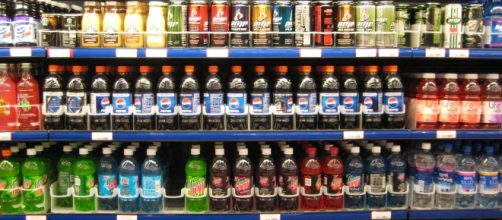This month, Cook County has joined a number of others on the soft drink purge via taxation. Ordinance 16-5931, otherwise known as the "Sweetened Beverage Tax," is now active throughout Illinois's largest county. With the hope to curb obesity, the tax will make soft drinks and other sugary beverages more expensive for consumers. The tax has quickly become unpopular, a cause for concern for Cook County law makers.
What is the Sweetened Beverage Tax?
Originally passed in November of 2016, a lawsuit blocking its enforcement was finally dismissed this year.
The tax officially took effect for consumers on August 2, 2017. According to Cook County’s Government website, “The tax imposed will be at the rate of $0.01 per ounce on the retail sale of all sweetened beverages in Cook County.” In other words, that 30-ounce Big Gulp of Coke from 7 Eleven is about to cost 30 cents more than it did before.
Controversial as it may be, the new tax has flustered many consumers. Cook County Democrats are wavering on their support for the tax following backlash from its passing. Its goals seem clear and genuinely honest, yet still, many voters are up in arms over the extra expense on their favorite sweet drinks. The Pop Tax is one of the latest trending items in the tumultuous environment that is Illinois government.
Are You Affected?
Cook County is the second most populous county in the United States. It covers a massive portion of Chicagoland, engulfing nearly all of Chicago, including parts if not all of towns like Elgin, Cicero, Arlington Heights, Evanston, Schaumburg, Palatine, Skokie, Orland Park, and Tinley Park. In all, the county is home to over 5 million people. That’s a lot of soft drinks.
There are notable exemptions to the tax. One hundred percent natural fruit or vegetable juice is exempt, as are syrups or powders with no sweeteners added. Infant formulas, medicinal beverages, and milk products are also free of the tax. Appropriately, weight reduction formulas and meal replacements are also exempt.
The tax targets highly sugary drinks like soda or other products with large amounts of added sugar.
Why the Tax?
The explicit goal of the tax is to lower the sale of sweetened beverages, much in the same way that cigarettes are penalized in Illinois with very high taxes so as to discourage their purchase. If successful, it would reduce the consumption of soda and other unhealthy, non-alcoholic drinks. The law words it specifically as, “an effort to promote public health.” It is very similar to the sweetened beverage tax which Berkeley, California put out a few years back, one which successfully reduced soft drink sales by around 10 percent after its implementation. Cook County hopes to see similar results in the near future.
At the same time, many taxpayers see the tax as ineffective, pointing out that it does nothing to discourage the purchase of other drinks, particularly liquor. They see it as a greedy ploy by the government to make more revenue on an otherwise ineffective solution to a greater problem. While the law may have good intentions on the outside, it will always be hard to say what its implicit intentions are. One thing is for certain: sugary drinks will be significantly more expensive. However, whether or not this deterrent will be enough to make a significant impact on public health obviously remains to be seen.


